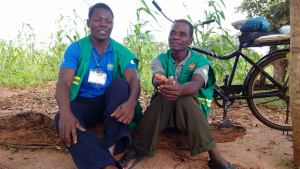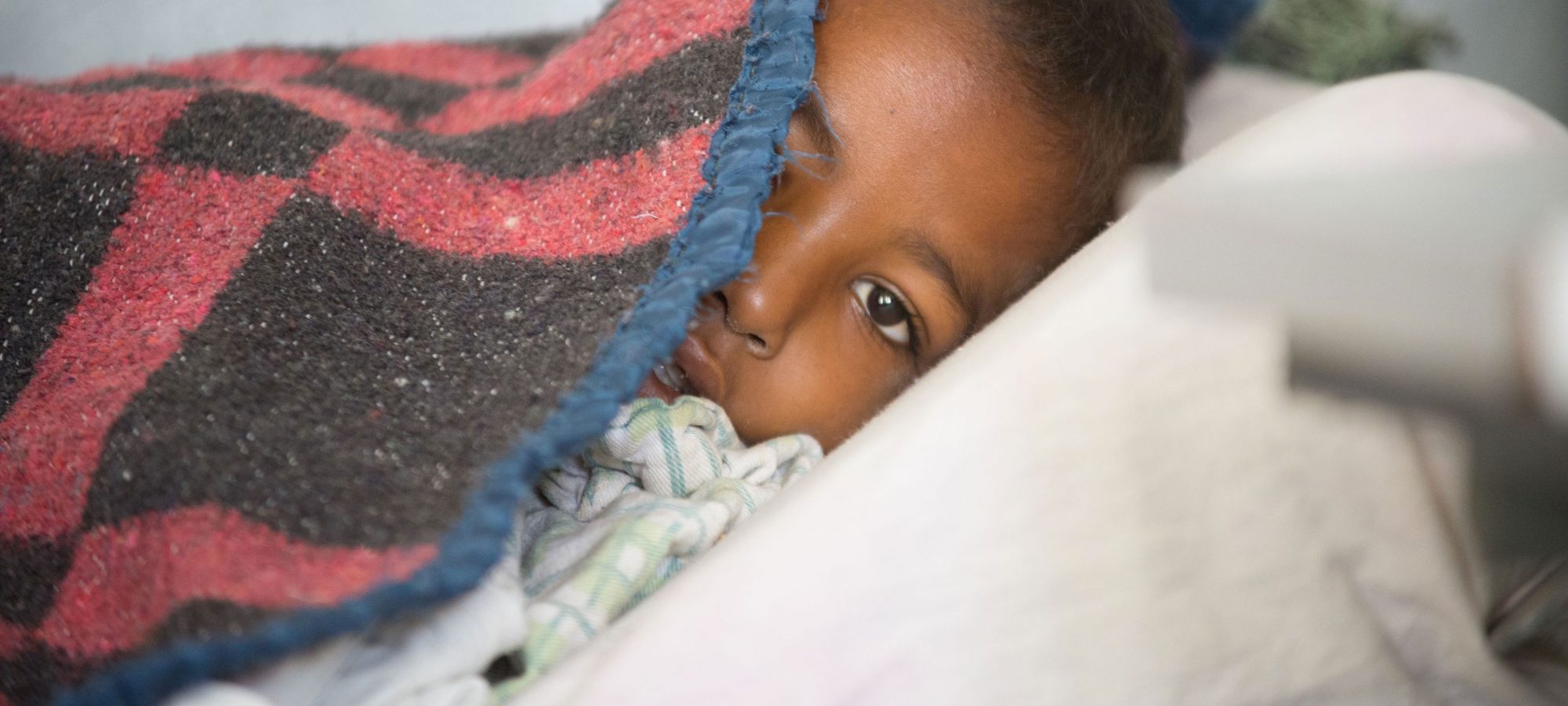 José Petane and Rafael Timóteo Nhone are community health workers from the Cachane community of Inhassoro district, Inhambane province, Mozambique. They provide basic health services to their community of 1,200 people. This includes diagnosing and treating malaria, managing simple cases of pneumonia and diarrhoea, following up with patients seeking care for reproductive health, HIV/AIDS and tuberculosis, and educating the community about health practices.
José Petane and Rafael Timóteo Nhone are community health workers from the Cachane community of Inhassoro district, Inhambane province, Mozambique. They provide basic health services to their community of 1,200 people. This includes diagnosing and treating malaria, managing simple cases of pneumonia and diarrhoea, following up with patients seeking care for reproductive health, HIV/AIDS and tuberculosis, and educating the community about health practices.
Last August, José and Rafael received training and began using CommCare, a mobile phone application designed to support community health workers and improve the quality of their services. The system enables community health workers to be in regular contact with their supervisors and the programme’s management.
The CommCare application is not entirely new to Inhambane province. It was developed and tested in a few districts under Malaria Consortium’s inSCALE project (funded by the Bill & Melinda Gates Foundation and UK Aid), which showed positive results in improving the performance and motivation of community health workers.
The roll-out of the project has not been without difficulties however, as José and Rafael explained. “When we first started using phones in our consultations, people did not accept them,” said Rafael. “Many people thought we were doing this only to collect personal data. To overcome this challenge, we called for support from community leaders and organised a community meeting or ‘community dialogue’ to explain the purpose of the phone and answer questions and concerns.”
“After our meetings people realised the value mobile phones have in our services, but this then lead to people only accepting health services if we had a mobile phone,” José added. “This caused problems when we could not use a phone because of low battery or poor reception, especially on rainy or cloudy days when we can’t recharge the battery on the solar panel. Many people did not understand why we were not using the phone and thought we did not want to treat them or their children. Because of this we now work with both our paper-based registry and a telephone at all times. This shows that what we record on the phone also goes to the book and that we can access information regardless of the situation.”
In this project titled upSCALE, Malaria Consortium, in partnership with Dimagi, UNICEF and the Ministry of Health, with funding from UK Aid, is training all community health workers in Inhambane province to use an improved version of the CommCare system. Community health workers’ have also been equipped with smartphones with bigger and higher quality screens. The project is being supported by the community health committees and community leaders who coordinate community dialogues and help solve problems when they arise. This support and coordination are crucial for the community health workers to be able to provide high quality health services to their communities.
By Dietério Magul
